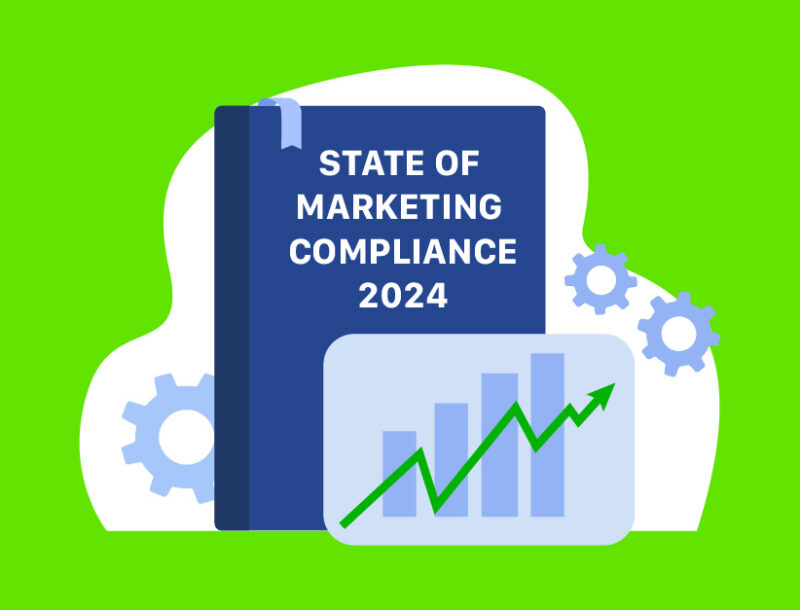State AGs and Consumer Protection: What's On Their Agendas

Last month, we were joined at COMPLY Summit by leaders from the New York State Department of Financial Services, Pennsylvania Office of Attorney General, and Cozen O’Connor for an insightful discussion around what’s on their office’s agendas for this year, and how the pandemic has shifted their focus since 2020. Here’s what they had to share.
Shifting Focuses
How has the pandemic affected the focus of state agencies?
Automation and Modernization
The bread-and-butter business of the New York Department of Financial Services (DFS) is examinations, says Katherine Lemire, Executive Deputy Superintendent. From the day that Linda Lacewell started at DFS as superintendent, she’s had an eye towards modernizing and automating the examination process-and the pandemic has made it that much more imperative. Especially during the early days of the pandemic, it became quite difficult-if not impossible-to do some of these examinations.
Katherine’s advice to the COMPLY audience is to think about the question: are all of you doing all you can to modernize and automate your compliance processes?
Automating, modernizing…the pandemic has made it very clear that this is the way we have to go.
—Katherine Lemire, NYDFS
Expansion of Traditional Consumer Finance Issues
For Nicholas Smyth, Assistant Director for Consumer Financial Protection and Senior Deputy AG at the Pennsylvania Office of Attorney General, one of their main focuses at the beginning of the pandemic was price gouging. While not a traditional consumer financial issue, he says, price gouging still has a huge impact on people’s finances.
The agency received nearly 6,000 consumer complaints about price gouging in the Commonwealth of Pennsylvania, issued over 500 cease-and-desist letters, and had almost three dozen settlements in the form of assurance of voluntary compliance with various companies, big and small, involved in price gouging.
Using Carrots and Sticks
Another focus for Pennsylvania was putting protections in place for consumers that weren’t already included in the CARES Act, and so they created the PA CARE Package.
The PA CARE package is a voluntary relief initiative that the AG put together asking banks and financial institutions to commit to:
- Expansion of small and medium business loan availability
- 90-day grace period for mortgages (at least)
- 90-day grace period for other consumer loans, such as auto loans
- 90-day window for relief from fees and charges such as late, overdraft fees
- Foreclosure, eviction, or motor vehicle repossession moratorium for 60 days
- No adverse credit reporting for accessing relief on consumer loans
There were sixteen institutions that signed on to the PA CARE package, from big banks (like PNC and Citizens Bank), to community banks, credit unions, and even a non-bank auto finance company. In total, consumers have saved over 10 million dollars in fees as a result of this voluntary initiative.
While the agency’s typical work is enforcement, this voluntary package provided an opportunity for positive reinforcement. Every time a new institution signed on to the package, the AG office would send out a press release praising them for their consumer protection efforts.
We like to use carrots, not just sticks, to encourage positive behavior.
—Nicholas Smyth, PA AGs Office
Multi-State Examinations
For multi-state exams, different states can “sign up” to be part of the examination. Oftentimes, it’s all 50 states (plus D.C., Puerto Rico, etc). Other times, it’ll be smaller groups, usually around 30 states or so. It all depends on the situation. The exam work is assigned out and managed by an executive committee, which could range from 5 to 10 states, depending on the complexity of the multi-state exam.
It’s possible to also have much smaller multi-state exams, and oftentimes states will just work together without a formal examination.
While multi-state exams sound overwhelming, it actually benefits both the enforcement agency and the target by avoiding overlap and conflicting requests, says Nicholas. This way, everyone is “sharing the same information and speaking the same voice.” Ultimately, multi-state exams save time and are more effective.
It’s really in a financial institution’s best interest to have a streamlined process, because the worst thing that could happen to a company is having inconsistent subpoena obligations.
—Milton Marquis, Cozen O’Connor
What generates enforcement actions?
Katherine Lemire shares that investigations at the NYDFS start on multiple sources and occurrences:
- Consumer complaints from calls, emails, etc. The agency looks at bigger-picture trends to see if they merit a larger investigation
- Newspapers and media-the agency looks into what they’re digging up to find matters that should be looked into further
- Whistleblowers-information from the inside can be the best jumpstarts to investigations
- Supervisory unit-if they come upon things that merit more than a regulatory slap on the wrist, DFS will start a broader investigation
Advice to Compliance Professionals
Nicholas encourages compliance professionals to focus on complaints-not just from federal or state regulators. Pay attention to what consumers are saying in chats, customer service calls, etc-that will really tell you if you have potential problems.
If you can run your business in a way where you can recommend all your friends and family to sign up for the product and pay for it, and all the add-ons that you offer, then you should sleep well at night.
—Nicholas Smyth, PA AGs Office
And, remember that candor is always a virtue when it comes to enforcements and investigations.
Katherine’s advice is that if you are in compliance, make sure that your organization is up to speed on the cybersecurity front, because that train is coming down the track.
Consumer data privacy is a wave that is coming.
—Katherine Lemire, NYDFS
This article only scratches the surface of what this panel discussed-watch the full session on-demand in the COMPLY Content Library for more insights.


